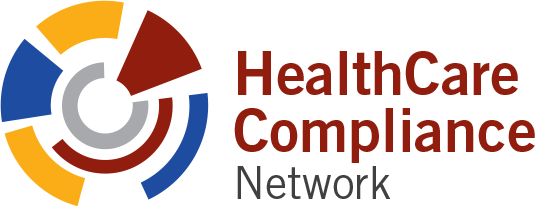Evaluation & Management (E/M)
In 2021, the American Medical Association implemented significant changes to the Evaluation and Management (E/M) code sets applicable in the office/outpatient setting. Those changes, which were intended to simplify coding by placing more emphasis on complexity and time, were not extended to other E/M service categories. At the time, many questioned whether the “old system” would remain in place, and if so, for how long. In response, the AMA hinted in a not-so-subtle way that 2021 was the tip of the iceberg, and that many more changes would be forthcoming. They did not disappoint.
In 2023, the CPT coding rules across several other E/M categories will be modified to ‘mirror’ many of the office/outpatient visit changes previously made. Additionally, in an attempt to further simplify code choices and minimize redundancies, several E/M code subsets will be deleted or significantly revised.
The following observation codes will be deleted
- 99217-99220
- 99224-99226
The following inpatient hospital codes will be revised to include services performed in the observation setting
- 99221-99223
- 99231-99233
- 99238-99239
The domiciliary/assisted living and rest home codes 99324-99337 will be eliminated
- Providers will report services performed in those locations with the home visit codes 99341-99350
- Consultations (99242-99245, 99252-99255), often the subject of much confusion and misinterpretation, will include revised prefatory language aimed at clarifying the intent of these codes
- Level 1 consultations will no longer be a thing – quite literally – as 99241 and 99251 will be deleted in their entirety
The biggest change, which will apply universally to all problem-oriented E/M code levels, will be the elimination of requirements associated with the history and examination. Providers will have the option to report E/M visits based on the medical decision making (MDM) or time. The infrastructure of MDM will bear some resemblance to the previous system (see 1995 and 1997 E/M rules), however, the new construct is much more streamlined and intuitive. The time element will be expanded to capture most aspects of physician work performed outside direct patient contact on the same day as the face-to-face encounter, such as chart review, phone calls, coordinating care, family conferences, etc. These activities, in addition to time engaged in direct patient contact, will be reportable based on the cumulative time spent on the date of service by the physician/other qualified health practitioner (e.g., NP, PA).
The Calendar Year (CY) 2023 Medicare Physician Fee Schedule Proposed Rule indicates that CMS will honor “most” of the AMA changes, while leaving the door open for a future overlay of Medicare-specific rules if they become “necessary in future rulemaking”. This would not be unprecedented: CMS superimposed guidelines upon guidelines in 1995 (and again in 1997) to provide more granularity and definition to the E/M rules incepted by the AMA in 1992. Good to know that, for now at least, there will be uniformity.
Finally, the prolonged services codes were not left untouched: 99354-99355 and 99356-99357 will be deleted. For office/other outpatient visits, 99417 will be billable by units for each additional 15 minutes of time superseding the typical time threshold associated with the base E/M code. Although 99417 is not new, it will essentially replace 99354-99355 as the sole CPT code to be used for prolonged care. 99417 can only be billed in tandem with a level 5 office visit (99354-99355 could be billed together with any qualifying E/M level). For Medicare (and those who follow Medicare policy on prolonged care), a different code, G2212, must be used. And, just to keep things interesting, the clock starts ticking 15 minutes later than it does for 99417. On the hospital side, a new code will be created to replace 99356-99357 (prolonged service in the inpatient or observation settings), which has not been determined at the time of this publication.
Surgery
The surgery section of the CPT manual will include updates to several of the subsections, starting with the integumentary system. This section will include three new codes, one deletion, and one revision including updates for removal of sutures/staples and implantation of absorbable mesh or other prosthesis for delayed closure defects.
The musculoskeletal system has few updates with one new add-on code CPT 22860 for a total disc arthroplasty and discectomy to prepare an interspace, and CPT’s 22857 and 27280 will have minor revisions to their descriptors. The respiratory system subsection also has minimal updates for 2023. This section as one new code, CPT 30469 for repairing a nasal valve collapse using temperature-controlled remodeling. However, the cardiovascular system will have several changes with seven new codes and one revision including updates for percutaneous pulmonary artery revascularization by stent replacement and percutaneous arteriovenous fistula creation of an upper extremity.
The digestive system is another subsection with several new changes. This will include seventeen new codes and eighteen deletions largely addressing hernia repair services. These changes have been prompted by the evolution of new medical technology and techniques surrounding these procedures. These updates aim to address correct reporting for “hybrid” abdominal repair procedures where the procedures are performed in part via open approach and in part via laparoscopy of with the use of a robot. The updates in this section are as follows:
The urinary system has few updates with only revisions to CPT’s 50080 and 50081. The codes are revised to include more detail to clarify a percutaneous nephrolithotomy or pyelolithotomy lithotripsy procedure. In addition, the male genital system has one new code, CPT 55867 for a laparoscopic simple subtotal prostatectomy, including robotic assistance when used. And the final subsection of surgery with updates for 2023 is the nervous system, which has three new codes as well as several revisions for skull implants and other descriptors.
Radiology & Laboratory
The surgery section is not on the only sections with several changes for 2023. The radiology section has the addition of one code, CPT 76883 for an ultrasound of the nerves and accompanying structures in one extremity, as well as revisions to CPT’s 76882, 78803, and 78830-78832 to include clarifying words to the descriptors. Revisions will also be made to CPT codes for somatic nerve injection, pulmonary angiography, and paravertebral spinal nerves and branches section.
The pathology and laboratory section also has several updates with eleven new codes and three revisions. The medicine section is another section with several new changes for 2023. This section will have eleven new codes and seven revisions. Updates include new add-on codes for injection procedures for angiographies during cardiac catheterizations as well as new codes for behavior monitoring and various other additions/revisions.
Miscellaneous
The Category III section, which is largely used for the reporting of emerging technologies, services, and procedures, is going to see many changes in 2023. There will be 46 new codes to encompass many new services. However, new codes are not the only changes being made to the Category III section, in addition to changes for new codes, the Category III sections will also see updates with several deletions as well. Twenty-three previous codes will be deleted. And finally, the Category III section has only two revisions for codes. CPT’s 0733T and 0734T will be updated to change the description of the remote therapy from “body and limb kinematic measurement based” to “real-time, motion capture-based neuro-rehabilitative.”
Several changes will be made to the CPT manual based on new medical practice and technology. The first major update being the addition of a new appendix for new Artificial Intelligence (AI) taxonomy. This new appendix will describe various applications of AI such as expert systems, machine learning, and algorithm-based medical services and procedures. However, this is not the only update for 2023 based on new medical services. There will be new codes added based on the emerging uses of virtual reality technology in therapy. CPT 0770T will be used for skill-building for social communication, emotional regulation, and daily functional skills in people with neurodevelopmental disorders. And CPT’s 0771T-0777T will be used for procedural dissociation services used in place of anesthesia during procedures to increase tolerance and reduce pain and anxiety.

